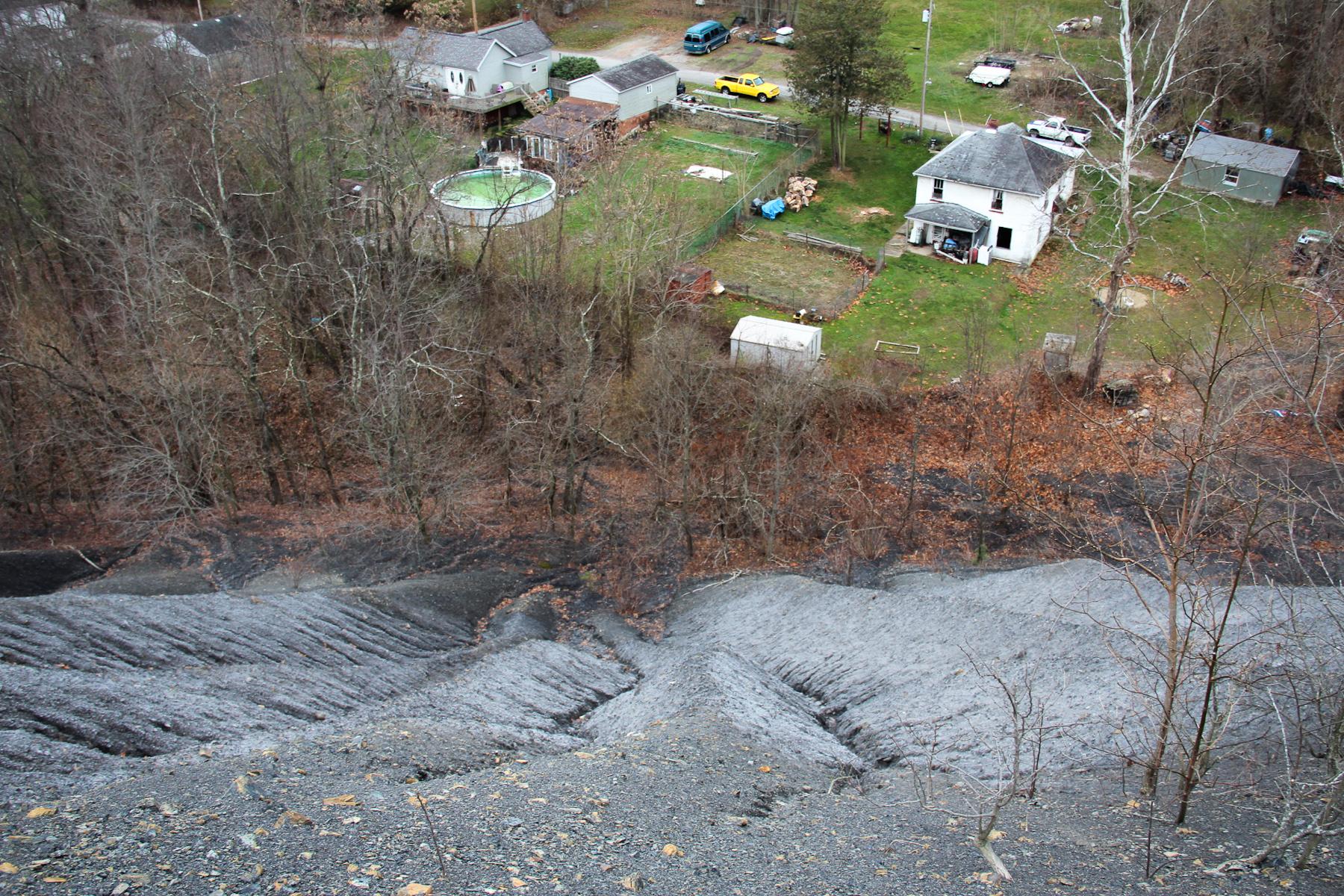The decline of coal means less money to clean up coal mining’s toxic past
An enormous coal refuse pile hovers over the town of Fredericktown in southwestern Pennsylvania. Decades ago, before modern regulations, companies left piles like these behind when a mine closed. Because of this, Pennsylvania has been left with hundreds of these sites — the most of any state in the country.
The dramatic drop in coal production in states like Pennsylvania has had an unfortunate consequence: less money to clean up abandoned coal mines that continue to pollute rivers and streams.
Much of the funding for mine cleanup projects comes from fees on coal production and the construction of new mines. As the coal industry struggles, that money is slowly disappearing.
Pennsylvania officials estimate the slowdown in coal production will lead to about a six percent decline in mine cleanup funds this year. The shortfall will slow efforts to clean up what is essentially a slow-motion environmental catastrophe. Abandoned strip mines, refuse piles and mine drainage have poisoned about 5,000 miles of streams and waterways.
The small village of Fredericktown, about an hour south of Pittsburgh, features one example of this widespread problem — although it differs from other polluted areas in one significant way: The coal waste is not off in some remote area. A large coal refuse pile — basically a hill made of coal mine tailings — looms over houses.
Resident Julie Bundy lives literally across the street.
“When we talk about where we live, [we say], ‘We live across from the slate dumps.’ Everybody knows where that is. I think it’s just something that people have accepted as being a part of the community,” Bundy says.
When Bundy was a girl, her parents wouldn’t let her near the dump. Now she has little kids of her own. “My neighbor told me at one time it was a farm,” Bundy says, “and there were apple orchards and everything on that property, and it was very beautiful at one time — and then this happened.”
“They had a big conveyor and they just dumped it,” says Eric Cavazza, head of the Pennsylvania Department of Environmental Protection's Abandoned Mine Reclamation Program. “And the material erodes off here into the river, gets into small streams and blocks storm sewer system in the towns.”
The pile was created before modern environmental regulations required mines to clean up their mess. Decades ago, companies left piles like these behind when a mine stopped making money. Pennsylvania has been left with hundreds of these sites — the most of any state in the country.
Cavazza would like to clean up the pile in Fredericktown, but his funding keeps shrinking. The budget sequester a few years ago took millions of dollars out of the state’s cleanup program. And there’s also this fundamental problem: The federal government pays for abandoned mine cleanup by assessing a fee on current coal production. As current production takes a nosedive, there’s simply less money coming in.
“I definitely think had we continued to get the grants of the size we were getting about three or four years ago, this project would be done probably within the next couple of years,” Cavazza says. “But we're at the reality now where we're probably only going to be able to tackle one of these really large dollar projects per year — and there are a lot of them.”
Mining exposes rocks like iron pyrite and shale to oxygen. When water flows over these rocks, it creates an acidic stew that leaches metals into waterways, and lowers the pH of streams to the same level as vinegar, explains Paul Ziemkiewicz, a water scientist at West Virginia University.
“A lot of these refuse piles are in fairly remote areas, up in headwater locations, [but] because the acid is so concentrated coming out of these refuse piles — even though the volume is not gigantic — they can wipe out many miles of headwater streams,” Ziemkiewicz says.
By simply grading the pile, capping it with soil, and seeding it with grass, the state could dramatically improve the water quality coming off of it, Cavazza says. Cavazza’s group did just that with a nearby pile last year.
Julie Bundy says the pile across from her house isn’t so bad during the summer. The leaves on the trees make it so you almost can’t see it. Still, Bundy thinks her neighborhood would be beautiful again if someday the big pile across the street simply goes away.
This article is based on a report by Reid Frazier of the Allegheny Front. The report aired on PRI’s Living on Earth with Steve Curwood.
We want to hear your feedback so we can keep improving our website, theworld.org. Please fill out this quick survey and let us know your thoughts (your answers will be anonymous). Thanks for your time!
